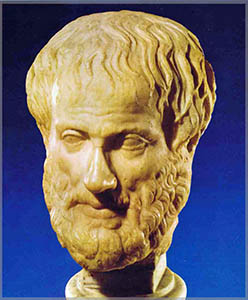The Study of Philosophy

Philosophy is a basic field of inquiry. Its range encompasses ideas and issues in every domain of human existence; and its methods apply to problems of an unlimited variety. The major in philosophy can develop not only philosophical skills and sophistications but also intellectual abilities that are readily applicable to pursuits in other academic areas, useful in careers far removed from philosophy, and valuable in everyday social and personal life. The study of philosophy can profoundly affect both the thinking one does and the kind of person one is.
Philosophy is the systematic study of ideas and issues, a reasoned pursuit of fundamental truths, a quest for a comprehensive understanding of the world, a study of principles of conduct, and much more. Every domain of human experience raises questions to which its techniques and theories apply, and its methods may be used in the study of any subject or the pursuit of any vocation. Indeed, philosophy is in a sense inescapable: life confronts every thoughtful person with some philosophical questions, and nearly everyone is guided by philosophical assumptions, even if unconsciously. One need not be unprepared. To a large extent one can choose how reflective one will be in clarifying and developing one's philosophical assumptions, and how well prepared one is for the philosophical questions life presents. Philosophical training enhances our problem-solving capacities, our abilities to understand and express ideas, and our persuasive powers.
—The American Philosophical Association
Philosophy at UAF is an excellent preparation for further study. Our majors and minors have gone on to graduate programs in philosophy, law, literature, political science, and a number of other fields.
Much of what is learned in philosophy can be applied in virtually any endeavor. This is both because philosophy touches on so many subjects and, especially, because many of its methods are usable in any field. Students develop capacities not only through reading and writing in philosophy, but also through the philosophical dialogue, in and outside the classroom, that is so much a part of a thoroughgoing philosophical education. These abilities include:
* General Problem Solving. The study of philosophy enhances, in a way no other activity does, one's problem-solving capacities. It helps one to analyze concepts, definitions, arguments and problems. It contributes to one's capacity to organize ideas and issues, to deal with questions of value, and to extract what is essential from masses of information.
* Communication Skills. Philosophy also contributes uniquely to the development of expressive and communicative powers. It provides some of the basic tools of self-expression. It helps one to express what is distinctive about one's view; enhances one's ability to explain difficult material; and helps one to eliminate ambiguities and vagueness from one's writing and speech.
* Persuasive Powers. Philosophy provides training in the construction of clear formulations, good arguments, and apt examples. It thereby helps one develop the ability to be convincing. One learns to build and defend one's own views, to appreciate competing positions, and to indicate forcefully why one considers one's own views preferable to alternatives.
* Writing Skills. Writing is taught intensively in many philosophy courses. Philosophy teaches interpretive writing through its examination of challenging texts, comparative writing through emphasis on fairness to alternative positions, argumentative writing through developing students' ability to establish their own views, and descriptive writing through detailed portrayal of concrete examples: the anchors to which generalizations must be tied.
Philosophy also contributes uniquely to the understanding of other academic pursuits and fields of inquiry. Many important questions about a discipline, such as the nature of its concepts and its relation to other disciplines, do not belong to that discipline, are not usually pursued in it, and are philosophical in nature. Philosophy of science, for instance, is needed to supplement the understanding of the natural and social sciences which one derives from scientific work itself. Philosophy of literature and philosophy of history are of similar value in understanding the humanities, and philosophy of art is important in understanding the arts. Philosophy is, moreover, essential in assessing the various standards of evidence used by other disciplines. Since all fields of knowledge employ reasoning and must set standards of evidence, logic and epistemology have a general bearing on all these fields.
[adapted from the APA]

